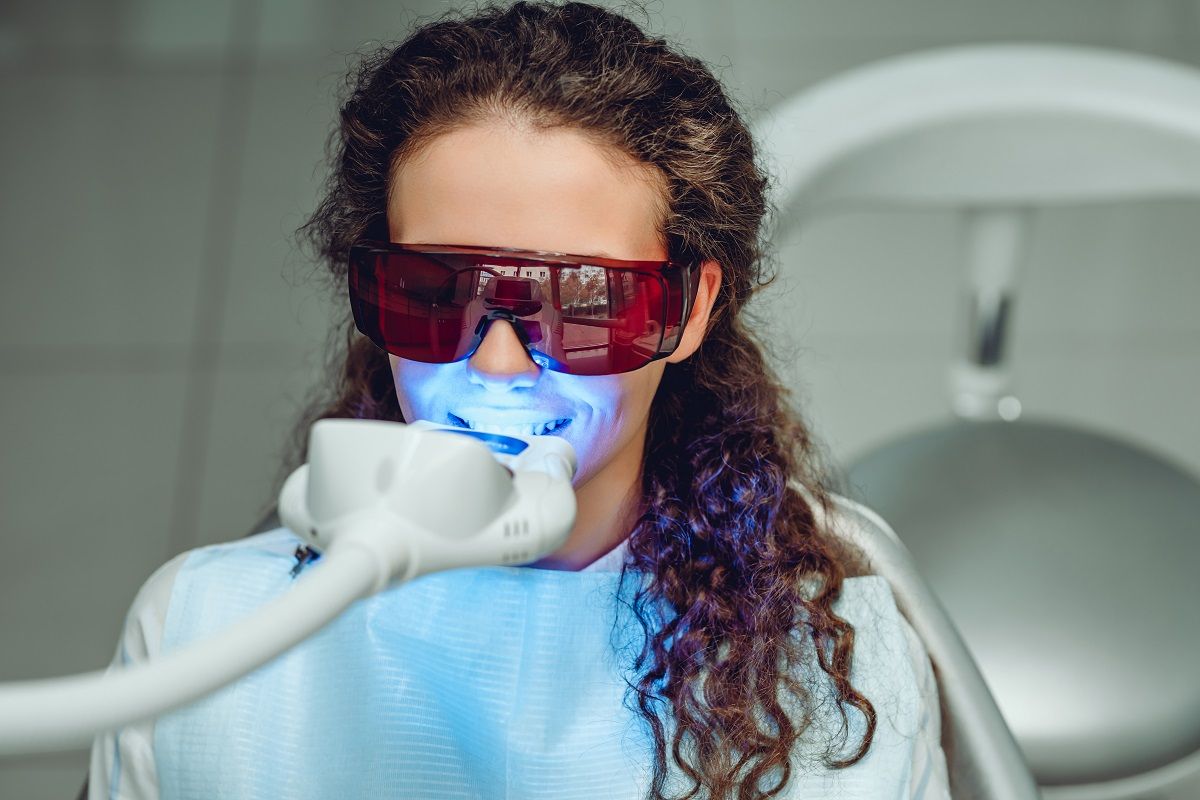Is Laser dentistry taking over traditional dentistry?
Dental Implants Solutions
Laser dentistry is the use of lasers to treat various dental problems. In 1989, it was commercially used in clinical dental practice for treatments requiring tooth tissue.
When opposed to drills and other non-laser equipment, laser dentistry may provide a more comfortable alternative for various dental treatments involving hard or soft tissue.
Dentists use laser dentistry for several different procedures, including:
- hypersensitive treatment
- tooth decay treatment
- teeth whitening
- gum diseases
Lasers can improve dental treatments' efficiency, cost-effectiveness, and comfort. Laser dentistry has been recognized by the Food and Drug Administration (FDA) as a therapy option for various dental disorders.
It's worth mentioning that the American Dental Association (ADA) has yet to do so, despite its optimism about the field's potential.
Procedures for Laser Dentistry
The two basic categories of laser dentistry are hard and soft tissue procedures. The teeth are called complex tissue, whereas the gums are referred to as soft tissue.
Hard tissue procedures
- Detection of cavities: Lasers can identify cavities early by detecting tooth decay.
- Dental fillings and tooth preparation: Laser treatments frequently do not require local anesthetic or traditional drilling. Lasers can eliminate microorganisms in a cavity, which can help a tooth's long-term health.
- Tooth sensitivity: Dental laser can treat teeth with hot and cold sensitivity by sealing tubules on the tooth's root.
Soft tissue procedure
- Gummy smile: Lasers can help to restructure gum tissue that causes a gummy smile.
- Crown lengthening: This operation reshapes both gum tissue and bone for a healthier tooth structure, which aids in the placement of dental restorations.
- Tongue frenulum attachment: A laser frenectomy may benefit people with a thick or tight frenulum (the fold of skin under the front part of the tongue that anchors to the mouth floor).
- Soft tissue folds: soft tissue folds from ill-fitting dentures can be removed with lasers without using sutures or pain.
Other laser procedure includes:
- Obstructive sleep apnea treatment: Sleep apnea is caused by tissue overgrowth in the neck. Lasers can remodel the throat and ease associated breathing issues.
- Treatment for TMJ (temporomandibular joint): Lasers can help alleviate joint discomfort and inflammation.
- Regeneration of nerves: Lasers can aid in regenerating damaged blood vessels, nerves, and scars.
- Cold sores: Laser treatment can treat and reduce healing time and pain.
- Teeth whitening: During teeth-whitening procedures, lasers accelerate the bleaching process.

What to expect during a dental laser treatment?
The first step is to schedule a consultation with your dentist. Following the dentist's identification of the problems and recommendation of laser treatment, the following are some of the typical events that occur throughout the procedure:
- Laser treatments, like tooth fillings, are relatively straightforward.
- The laser handles all of the work, so drilling is unnecessary.
- The laser causes no pain or discomfort to the patient.
- You may bleed during the treatment, which the dentist will immediately stop.
- The dentist will open your mouth to treat dental problems.
What to expect after a dental laser treatment?
Following laser treatment, you can generally expect the following outcomes:
- Unlike traditional dental procedures, which cause significant bleeding, laser treatments cause significantly less bleeding. There will be no persistent bleeding or open wounds at the therapy location.
- Compared to conventional dental treatments, laser treatment reduces the likelihood of infection.
- If the therapy is successful, the chances of you experiencing pain or edema are zero to none.
- If you experience severe swelling or discomfort in your mouth that does not go away within a day, do not delay seeing your dentist.
Types of lasers used in dentistry
Hard tissue and soft tissue lasers are the two major types of lasers that dentists use during laser operations. Each laser has a different wavelength that allows it to cut into a particular tissue type. Scientists have discovered how to create lasers with light wavelengths suitable to the tissues in your mouth by varying the wavelength (and sometimes the pulse). This works because various types of tissue absorb different wavelengths of light.
Hard tissue laser
An intricate tissue laser treats your teeth. One of these lasers' wavelengths cuts through water and bone, specifically the calcium phosphate in your bones and teeth. These lasers may cut into your teeth precisely, removing little portions for contouring or in preparation for operations. Hard tissue lasers help to treat the following purposes:
- Cavity detection.
- Managing tooth sensitivity.
- Teeth preparation for dental fillings.
Soft tissue laser
Soft tissue lasers emit light at a wavelength that hemoglobin and water readily absorb. Because hemoglobin is a chemical found in blood, soft tissue lasers are suitable for gum work. Diode lasers, a type of continuous-wave laser, are used in several soft tissue lasers.
Soft tissue lasers are ideal for cosmetic operations because they produce immediate results. These lasers are great for cutting through soft tissue and sealing exposed blood arteries. This is why you don't bleed much during laser dentistry, and your healing time is faster. Soft tissue lasers help to treat the following purposes:
- Crowns are lengthening
- Managing restricted tongue mobility
- Gummy smile
How much does laser dentistry cost?
The cost of laser treatments depends on the operation and equipment used. They may be less expensive than non-laser treatment because it only takes fewer sessions. Furthermore, dental insurance typically bases payment costs on the therapy rather than the method used.
Your compensation will likely be the same as it would be for drilling and other treatments. However, it's always a good idea to ask about your specific insurance ahead of time to acquire the most up-to-date information.
What are the pros and cons of laser dentistry?
Pros
- Soft tissue lasers have the potential to reduce the need for sutures.
- Because the laser encourages blood coagulation, soft tissue is not bleeding.
- For some treatments, laser dentistry does not require anesthesia.
- Because the laser sterilizes the area, there is less risk of bacterial infection.
- Wounds can heal more quickly, and tissue can regenerate.
- The operations may cause less injury to the tissues around them.
Cons
- Lasers, such as metal amalgam, cannot be used on teeth with fillings.
- Hard lasers can sometimes cause tooth pulp damage.
- Some laser operations still require anesthesia.
- Drills are still used to finish fillings, such as contouring, adjusting the bite, and polishing the filling.
- Laser treatment cannot perform certain operations depending on the preexisting surrounding tissue or components, including the teeth or gums.
- There is a possibility of gum damage.
Is laser dentistry risky?
The dangers of laser dentistry are minimal. Selecting a trained dental expert is critical because employing the wrong wavelength or power level might cause tissue damage. Furthermore, some doctors are concerned that advertisements push the usage of laser treatment beyond what individuals genuinely require.
To protect your eyes from the laser, your dentist will have you wear protective glasses.
Conclusion
Laser dentistry is a convenient solution to many oral and dental problems, whether severe or cosmetic. If you have laser gum surgery or hard tissue work, expect a more effortless operation and a quicker recovery. Ask your dentist about laser dentistry when you need the dental job done.
Contact your dentist in Walnut Creek, Massood Darvishzadeh, DDS, at Dental Implant Solutions to learn more about Laser Dentistry,
Resource:
What Is General Dentistry and Who Is a General Dentist?
*This media/content or any other on this website does not prescribe, recommend, or prevent any treatment or procedure. Therefore, we highly recommend that you get the advice of a qualified dentist or other medical practitioners regarding your specific dental condition*
Subscribe To Our Newsletter
Get Updates And Learn From The Best
More To Explore



CONTACT US
Massood Darvishzadeh, DDS
2021 Mt Diablo Blvd., Suite 100A
Walnut Creek, CA 94596
(925) 939-2600info@dentalimplantsolutions.net